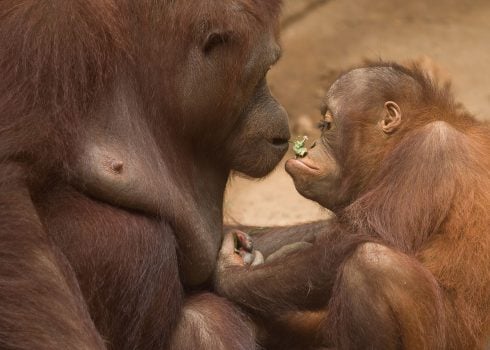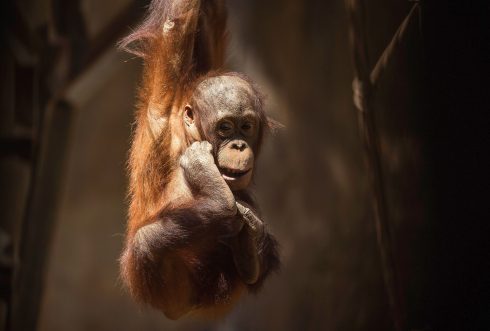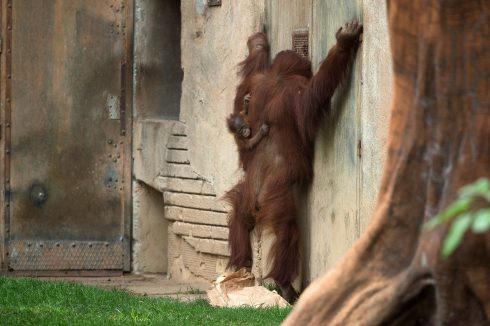THE Bornean orangutan is an endangered species and is the first to be born in a European Orangutan Conservation Programme in 12 months.
Orangutans usually give birth at night, but Suli, the baby orangutan’s mother, surprised the zoology team at Bioparc and gave birth in broad daylight on August 4.

Veterans of the zoo say that Suli and her infant are in perfect condition and already playing games together in the Bioparc’s rainforest.

The zoology and veterinary teams will continue to monitor the newborn 24-hours a day, though they will not intervene unless there are signs of illness and distress.

They will look out for things like how the pair are interacting, how the mother cleans her baby, and how well it feeds.
Unlike other animals, the mother will continue to raise her baby for around seven years, and won’t usually have another one until she’s happy her youngest can fend for itself.

The Bornean orangutan is one of the most iconic primate species in the tropical rainforests of Asia, and has recently been listed in serious danger of extinction by the International Union for Conservation of Nature (IUCN).

While Bioparcs like Fuengirola are doing all they can to preserve the species, it’s not enough. The natural habitat of the species is being destroyed, with companies burning down forests for palm oil.
Poaching is also a problem, causing a loss of 2,000 to 4,000 orangutans a year.
READ ALSO:
